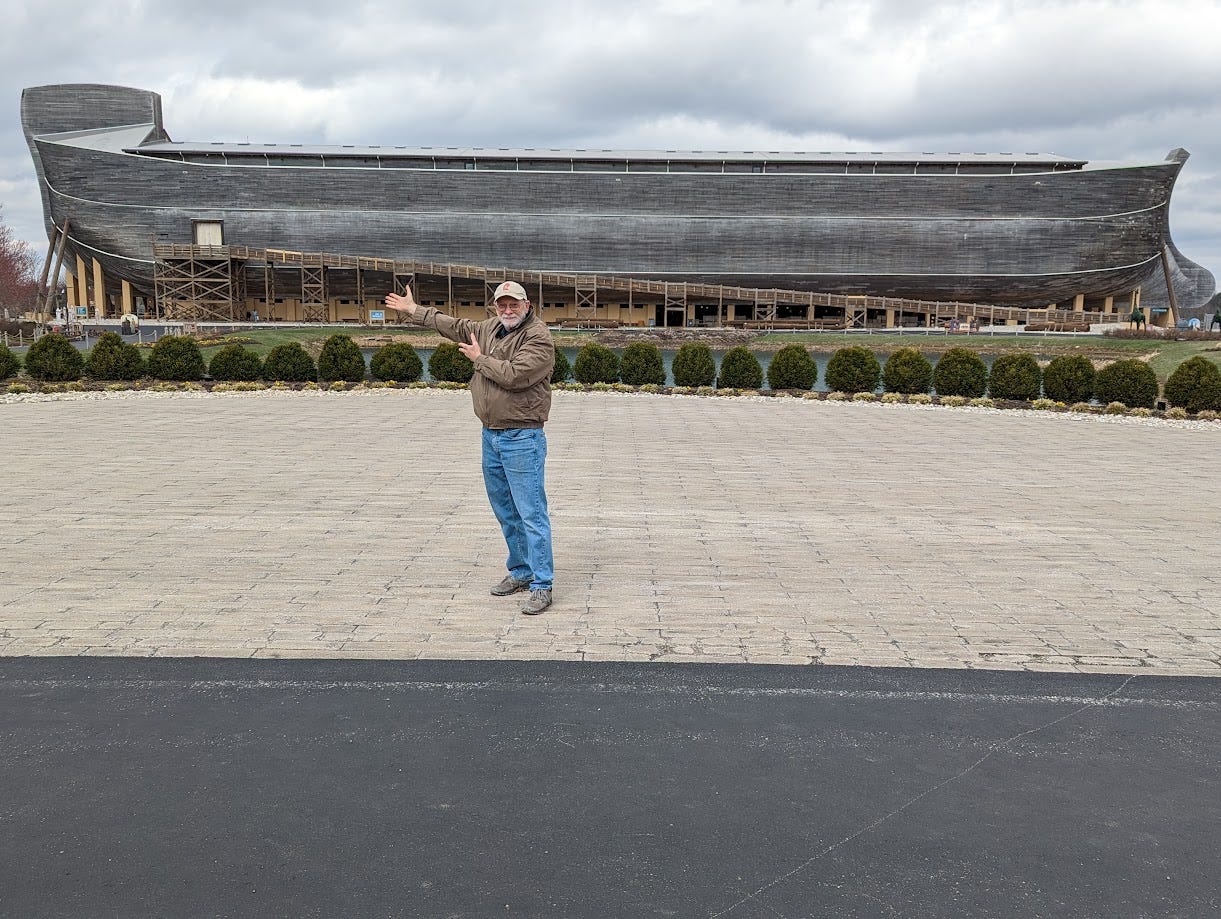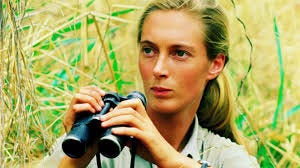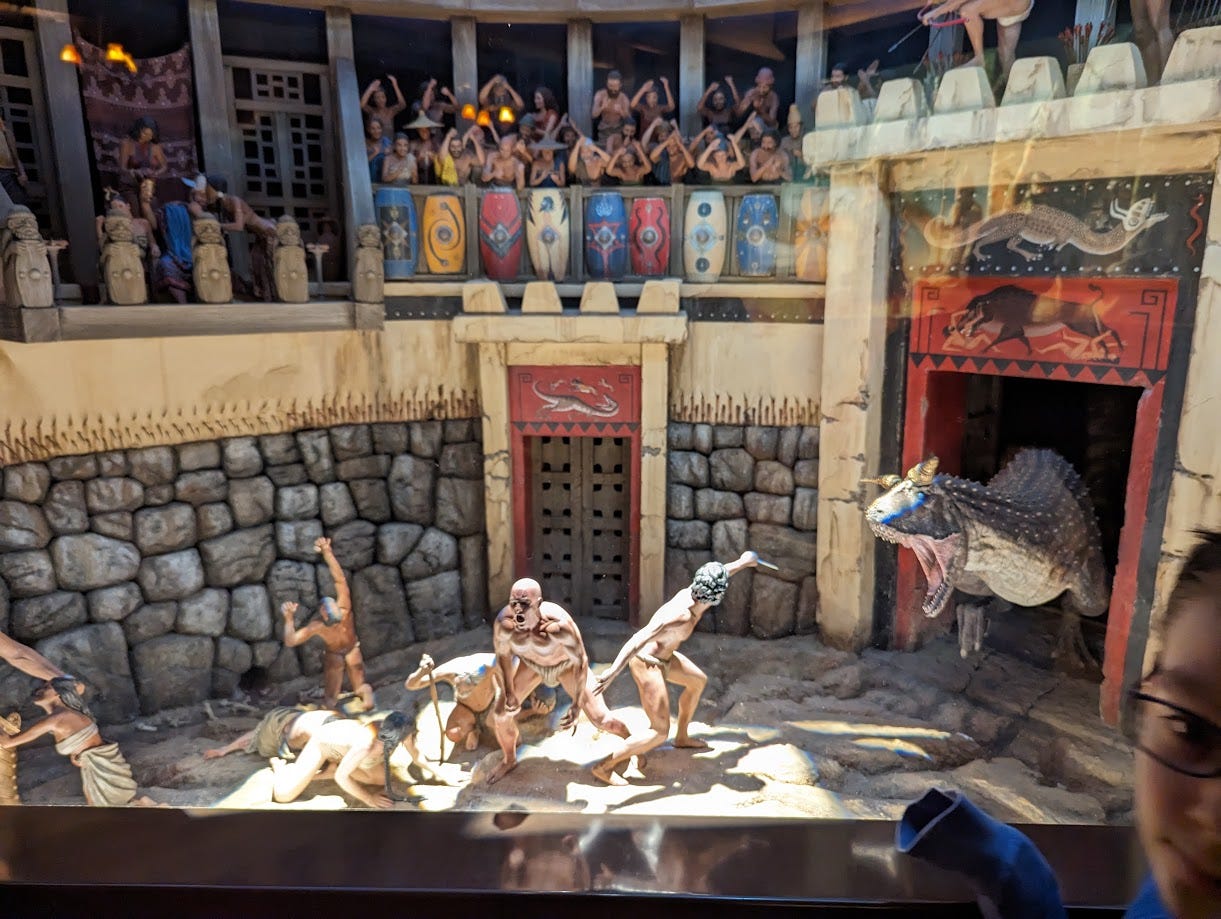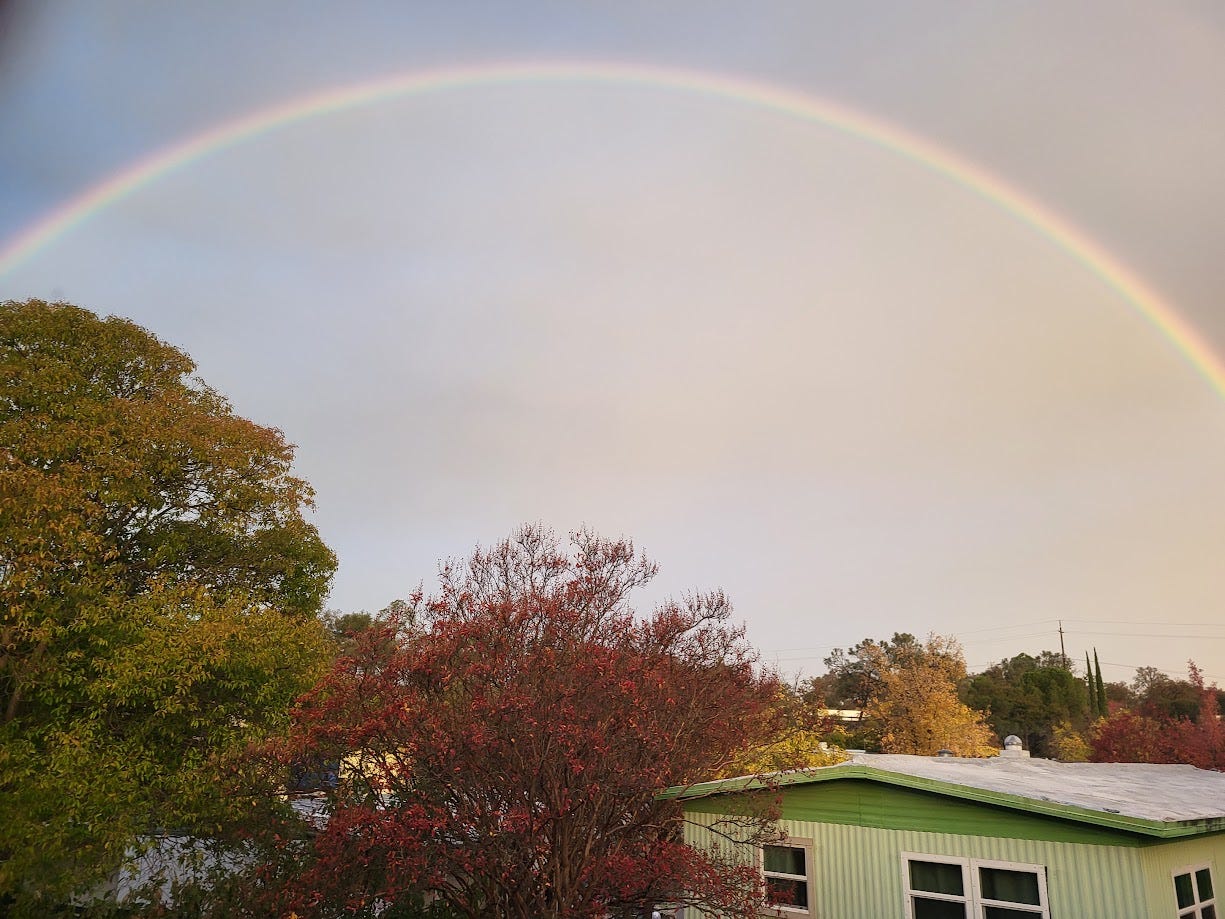“Believe those who are seeking the truth; doubt those who find it.” Andre Gide
Many baby boomers know all about Jane Goodall. We grew up watching National Geographic documentaries that featured Goodall’s study of chimpanzees in the wild. The consummate naturalist, Goodall understood that her first job was to observe without bias, without projecting her own assumptions and associations onto the scene, to stay curious and keep herself immersed in her study rather than jumping to conclusions thereby ending her inquiry. Aspiring to that level of objectivity toward my own species, I did my best to put aside my incredulity and judgement, at least for the time being, and then boarded the ark.
As long as I paid the price for admission ($55 each with the senior discount) and the parking fee ($15), my sister was willing to humor me, driving us from her home in suburban Cincinnati across the Ohio River into northern Kentucky so we could check out Noah’s ark. The Ark Encounter as it’s called. The investors spent 100 million dollars building it, and at 510 feet long, 85 feet wide, and 51 feet high–purportedly the same dimensions that God dictated to Noah–the ark is pretty darn impressive as it sits in its dry dock waiting for the deluge. Everything is ready. The ark is fully outfitted and provisioned. The animals–most of them full scale models, some of them animatronic–have already boarded and are kicking back in their pens and stables. Noah and his family, also animatronic, have settled into their quarters. And now for the flood! A flood of tourists, that is, who, on a cold and windy February weekday, entered the ark, not two at a time, but in bunches, all of them, including my sister and me, parading by the displays and storyboards depicting a very literal interpretation of the book of Genesis.
Having summoned my inner Jane Goodall, I was curious about The Ark Encounter and its inherent theology. My sister, however, was less enthused, and that’s putting it mildly. Literalism does not sit well with her. “I’ll be OK,” she said during our drive into Kentucky, “so long as there aren’t any dinosaurs.” The world being only 6,000 years old, however, mankind and dinosaurs coexisted, so dinosaurs had a rightful place on board the ark. And there they were! Baby dinos frolicking in their pens! It’s to my sister’s credit that she kept going, taking it all in, as we slowly ascended the walkway to all three decks, each with its own gift shop, three stories worth of multi-media exhibits, a good many of them depicting a world so depraved, so unredeemable that God commanded a do-over.
My objectivity didn’t last all that long. It took a pretty big hit as I gawked at the dinosaurs. It took another big hit as I gazed slack jawed at the diorama depicting antediluvian gladiatorial games, the combatants fighting for their lives, not against lions, but against a dinosaur, some kind of velociraptor I think. The final blow came as I stood in front of the exhibit on climate change. When I read that the Earth’s temperature had been rising long before humans began burning fossil fuels, my objectivity, already diminished, suddenly buckled and collapsed, leaving me with a question that has since been lingering in my mind: What would Jane Goodall say?
In my imagination, I hear Jane’s voice, soft spoken and wise with her British accent, narrating her latest National Geographic special. Humanity is a story telling species she says in a voiceover, the camera panning the The Ark Encounter and then taking the viewer inside, zooming in on a father snapping photos of his young son standing in front of the ark’s ponderous door, shut fast and bolted against the outside world. Stories, Jane continues, become a lens through which we see ourselves and comprehend our world. Those who live inside their chosen story are called true believers. They live inside their story, Jane concludes, the way Noah and his family live in their ark, sealed up and insulated, provisioned with meaning and purpose, but with only one small window to look through.
I think I see what my inner Jane Goodall is getting at. For example, don’t many of us live inside a political story? Think back to the 2008 presidential election. Along with other considerations, it was, I believe, a choice between two compelling narratives. There was the story of the war hero shot down in Vietnam who through sheer force of will survived the prisoner of war camp and later rose to the top of his party, a model of strength and integrity. Then there was the story of the first black man to be his party’s nominee for president. The son of an immigrant father, raised by a single mother, he became for many an embodiment of intelligence and public service. Sure, we also considered the policies the two candidates proposed, but in the end we also chose one story over the other. Interestingly, research reveals that a typical voter does not join the Democratic Party because they support, say, a robust social safety net. Rather they support a robust social safety net because they have become a Democrat. It’s the same dynamic when a voter joins the Republican Party. They may not have thought all that much about the party’s platform before they joined, but they’re all for it once they belong. When we take up residence inside our story, the story shapes us, becomes us. Same goes for joining a church maybe? We go where the ark goes.
Shortly after The Ark Encounter opened in 2016, the man who was the driving force in getting it built, Ken Ham, invited Bill Nye the Science Guy for a walk and talk on board the ark. The exchange between the two is fascinating, Ham espousing creationism and Nye advocating for science. (Here's a link to an abridged video of the event) To be clear, I am pretty much in science’s corner. I channel Jane Goodall for Pete’s sake!, and I very much admire Nye's personal courage as well as his motivation for accepting the invitation. But I think Bill Nye took the wrong approach in refuting Ham’s creationist claims. It seems to me that Nye countered literalism with scientism. Scientism is, paradoxically, the religion of science, the dogmatic belief that the scientific method is the only path to the truth, meaning if something can’t be quantified, love for example, then it doesn't count toward knowledge. “The meaning of life is to pass on our genes,” Nye says to Ham, greatly depreciating what faith, philosophy, and art have to say about life as a human being. Really, Bill? These people have boarded the ark to live out their creationist narrative—a story as meaningful to them as it is impossible to us—and that’s the alternative you give them? I think it’s fair to say that scientism is itself a story that too many scientists inhabit, sealing themselves up in an ark full of data, losing sight of the whole by focusing too much on the parts. An extreme example would be those Monsanto scientists who bioengineered crops that can only produce infertile seeds. Suicide seeds they’re called. No longer able to bank seeds for future growing seasons, too many third world farmers, already deep in debt, now have to buy seeds from the company store. Terminator technology is another name for what these scientists do. To quote the poet William Wordsworth: “Our meddling intellect / mis-shapes the beauteous form of things:--/ We murder to dissect.” That’s scientism alright.
To the great relief of my sister, we finally finished up our tour and exited through the gift shop, but not before I purchased a souvenir magnet ($7.00). It was a short walk from the ark to the visitor’s center where we waited for the shuttle to take us back to the parking lot. Only it’s not called a visitor’s center. It’s called The Answers Center. Before our shuttle arrived, we had plenty of time to browse the books and DVDs and course curriculums for sale, all of them claiming to make sense of creation, to provide answers to my questions. Thank-you, Ken Ham, but no. Once a seeker is given the answer, the search is over. The book is closed and one’s mind along with it. I need a different kind of story. Something that points to the middle way between Ken Ham and Bill Nye. In the story I’m looking for, faith doesn’t clamp down on certainty, but opens up to mystery, and science doesn’t murder to dissect life, but sacralizes it. Let that story be my ark. Let it save me from drowning in all the absurdity, especially my own.










Mike - Once again you give me something to chew on. Excellent piece. Janet
I liked the idea that we all live within our chosen ‘boxes’ and once we step inside we become ‘true believers’. I am hoping to continue my searching and staying out of boxes!